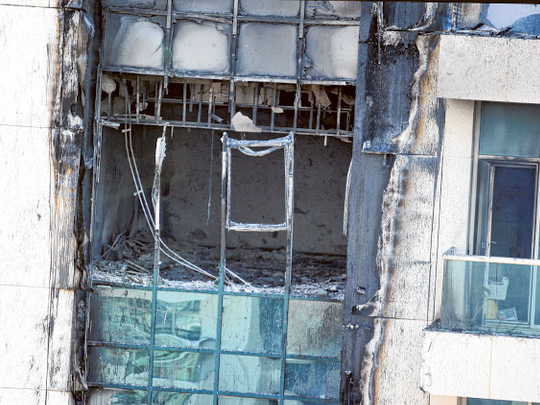
Dubai: Some parents of children who witnessed the massive fire that ripped through the Tamweel Tower in Jumeirah Lakes Towers last week have expressed concerns that their children were reliving the traumatic event.
“[Three] days back, the fire alarm in the hotel where we were staying went off. The kids started getting the chills; they were very scared. They asked what would happen next. Or if our room would be on fire again,” Joseph Joseph, a Singaporean expatriate and father-of-three, said.
Another father, who earlier spoke to Gulf News on condition of anonymity, said his children would wake up from nightmares of their hotel room catching fire at least three times in the night.
“On the first night, my son tried to be brave. But he started crying the next day looking for his toys and school things,” Homer Ocsio, father of a seven-year-old and who lived on the eighth floor of the tower, told Gulf News.
These responses characterise Acute Stress Disorder (ASD) which is a significant anxiety disorder that can develop after exposure to any event that results in psychological trauma, according to Dr Raymond Hamden, clinical and forensic psychologist at the Human Relations Institute.
People who develop ASD could suffer from depression, anxiety, hyper vigilance, exaggerated startle response, invasive thoughts, among others.
These are normal human reactions, wherein children are the most vulnerable sub-group. Experts recommend parents to be there for their children during these times.
“Parents need to be available to comfort the children consistently. It would be good if they could talk to the children about the experience,” Dr Hamden said.
Children may feel insecure and may ask a lot of questions which parents should answer.
“Don’t give [them] too much information, but don’t hide information either. Assure them that they are in a safe place,” Dr Mohammad Tahir, general, adult and child psychiatrist at Health Call, said.
Parents may encourage their children to draw what they’re feeling to help them in their way to recovery, Dr Tahir said.
If symptoms persist, experts advise parents to seek professional help to avoid further complications in the long run.












